IN DEFENSE OF LOST CAUSES
IN DEFENSE OF LOST CAUSES

SLAVOJ  I
I EK
EK

First published by Verso 2008
Copyright Slavoj  i
i ek 2008
ek 2008
This paperback edition published by Verso 2009
All rights reserved
The moral rights of the author have been asserted
1 3 5 7 9 10 8 6 4 2
Verso
UK: 6 Meard Street, London W1F 0EG
US: 20 Jay Street, Suite 1010, Brooklyn, NY 11201
www.versobooks.com
Verso is the imprint of New Left Books
ISBN-13: 978-1-84467-429-9
British Library Cataloguing in Publication Data
A catalogue record for this book is available from the British Library
Library of Congress Cataloging-in-Publication Data
A catalog record for this book is available from the Library of Congress
Typeset by Hewer Text UK Ltd, Edinburgh
Printed in the US by Maple Vail
Alain Badiou was once seated amongst the public in a room where I was delivering a talk, when his cellphone (which, to add insult to injury, was mineI had lent it to him) all of a sudden started to ring. Instead of turning it off, he gently interrupted me and asked me if I could talk more softly, so that he could hear his interlocutor more clearly... If this was not an act of true friendship, I do not know what friendship is. So, this book is dedicated to Alain Badiou.
Contents
Afterword to the Second Edition:
What Is Divine About Divine Violence
Introduction: Causa Locuta, Roma Finita
Roma locuta, causa finitathe decisive words of authority that should end a dispute, in all its versions, from the Church synod has decided to the Central Committee has passed a resolution and, why not, the people has made clear its choice at the ballot box... However, is not the wager of psychoanalysis the opposite one: let the Cause itself speak (or, as Lacan put it, I, the truth, speak), and the Empire (of Rome, that is, contemporary global capitalism) will fall apart? Ablata causa tolluntur effectus: when the cause is absent, the effects thrive (Les effets ne se portent bien quen absence de la cause). What about turning this proverb around? When the cause intervenes, the effects are dispelled...
However, which Cause should speak? Things look bad for great Causes today, in a postmodern era when, although the ideological scene is fragmented into a panoply of positions which struggle for hegemony, there is an underlying consensus: the era of big explanations is over, we need weak thought, opposed to all foundationalism, a thought attentive to the rhizomatic texture of reality; in politics too, we should no longer aim at all-explaining systems and global emancipatory projects; the violent imposition of grand solutions should leave room for forms of specific resistance and intervention... If the reader feels a minimum of sympathy with these lines, she should stop reading and cast aside this volume.
Even those who otherwise tend to dismiss French postmodern theory with its jargon as an exemplary case of bullshit tend to share its aversion towards strong thought and its large-scale explanations. There is indeed a lot of bullshitting going on these days. Unsurprisingly, even those who popularized the notion of bullshit, such as Harry Frankfurt, are not free from it. In the endless complexity of the contemporary world, where things, more often than not, appear as their oppositesintolerance as tolerance, religion as rational common sense, and so on and so forththe temptation is great to cut it short with a violent gesture of No bullshit!a gesture which seldom amounts to as if the pose of outspoken personal sincerity is a guarantee of truthfulness.
The common sense of our era tells us that, with regard to the old distinction between doxa (accidental/empirical opinion, Wisdom) and Truth, or, even more radically, empirical positive knowledge and absolute Faith, one should draw a line between what one can think and do today. At the level of common sense, the furthest one can go is enlightened conservative liberalism: obviously, there are no viable alternatives to capitalism; at the same time, left to itself, the capitalist dynamic threatens to undermine its own foundations. This concerns not only the economic dynamic (the need for a strong state apparatus to maintain the market competition itself, and so on), but, even more, the ideologico-political dynamics. Intelligent conservative democrats, from Daniel Bell to Francis Fukuyama, are aware that contemporary global capitalism tends to undermine its own ideological conditions (what, long ago, Bell called the cultural contradictions of capitalism): capitalism can only thrive in the conditions of basic social stability, of intact symbolic trust, of individuals not only accepting their own responsibility for their fate, but also relying on the basic fairness of the systemthis ideological background has to be sustained through a strong educational, cultural apparatus. Within this horizon, the answer is thus neither radical liberalism la Hayek, nor crude conservatism, still less clinging to old welfare-state ideals, but a blend of economic liberalism with a minimally authoritarian spirit of community (the emphasis on social stability, values, and so forth) that counteracts the systems excessesin other words what Third Way social-democrats such as Blair have been developing.
This, then, is the limit of common sense. What lies beyond involves a Leap of Faith, faith in lost Causes, Causes that, from within the space of skeptical wisdom, cannot but appear as crazy. And the present book speaks from within this Leap of Faithbut why? The problem, of course, is that, in a time of crisis and ruptures, skeptical empirical wisdom itself, constrained to the horizon of the dominant form of common sense, cannot provide the answers, so one must risk a Leap of Faith.
This shift is the shift from I speak the truth to the truth itself speaks (in/through me) (as in Lacans matheme of the analysts discourse,
There are still only two theories which imply and practice such an engaged notion of truth: Marxism and psychoanalysis. They are both struggling theories, not only theories about struggle, but theories which are themselves engaged in a struggle: their histories do not consist in an accumulation of neutral knowledge, for they are marked by schisms, heresies, expulsions. This is why, in both of them, the relationship between theory and practice is properly dialectical, in other words, that of an irreducible tension: theory is not just the conceptual grounding of practice, it simultaneously accounts for why practice is ultimately doomed to failureor, as Freud put it concisely, psychoanalysis would only be fully possible in a society that would no longer need it. At its most radical, theory is the theory of a failed practice: This is why things went wrong... One usually forgets that Freuds five great clinical reports are basically reports on a partial success and ultimate failure; in the same way, the greatest Marxist historical accounts of revolutionary events are the accounts of great failures (of the German Peasants War, of the Jacobins in the French Revolution, of the Paris Commune, of the October Revolution, of the Chinese Cultural Revolution...). Such an examination of failures confronts us with the problem of fidelity: how to redeem the emancipatory potential of these failures through avoiding the twin trap of nostalgic attachment to the past and of all-too-slick accommodation to new circumstances.






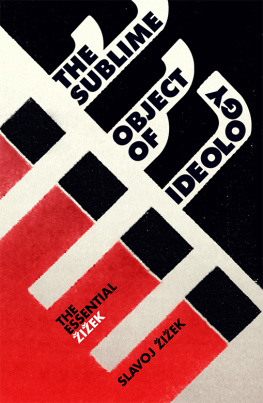

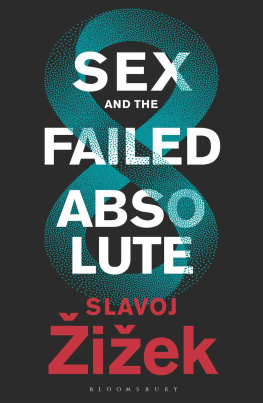
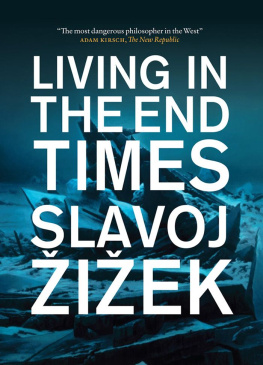
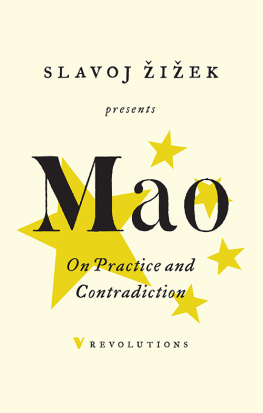




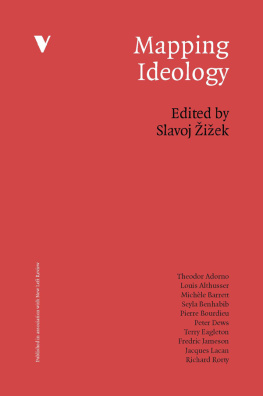
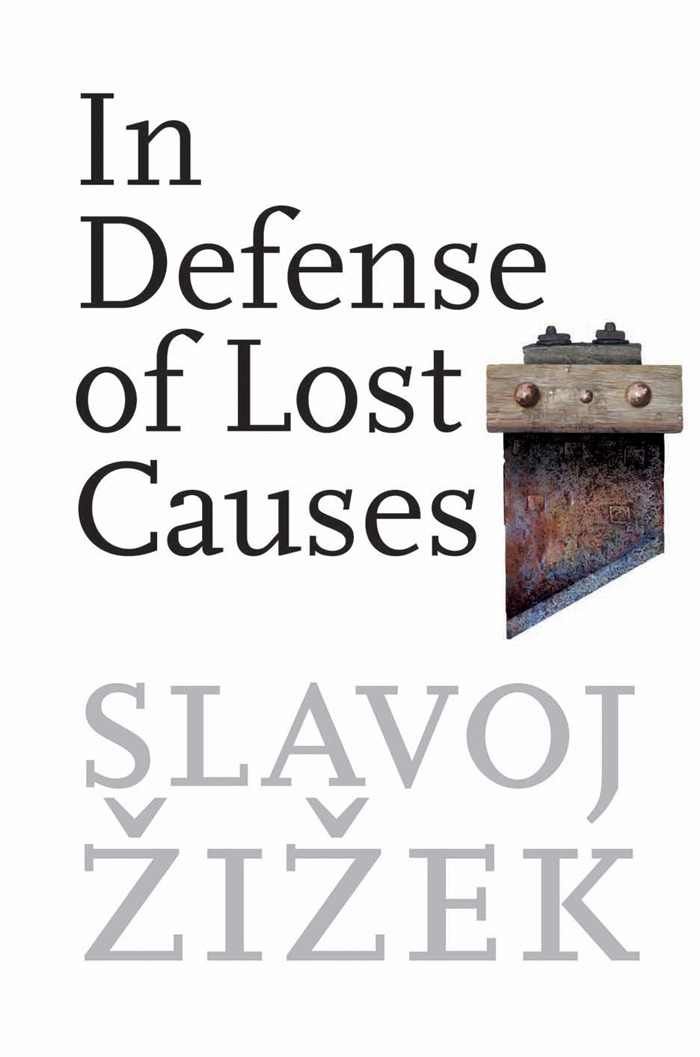

 I
I
 ek 2008
ek 2008